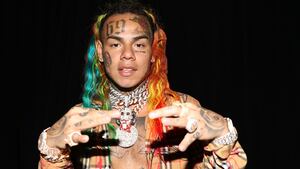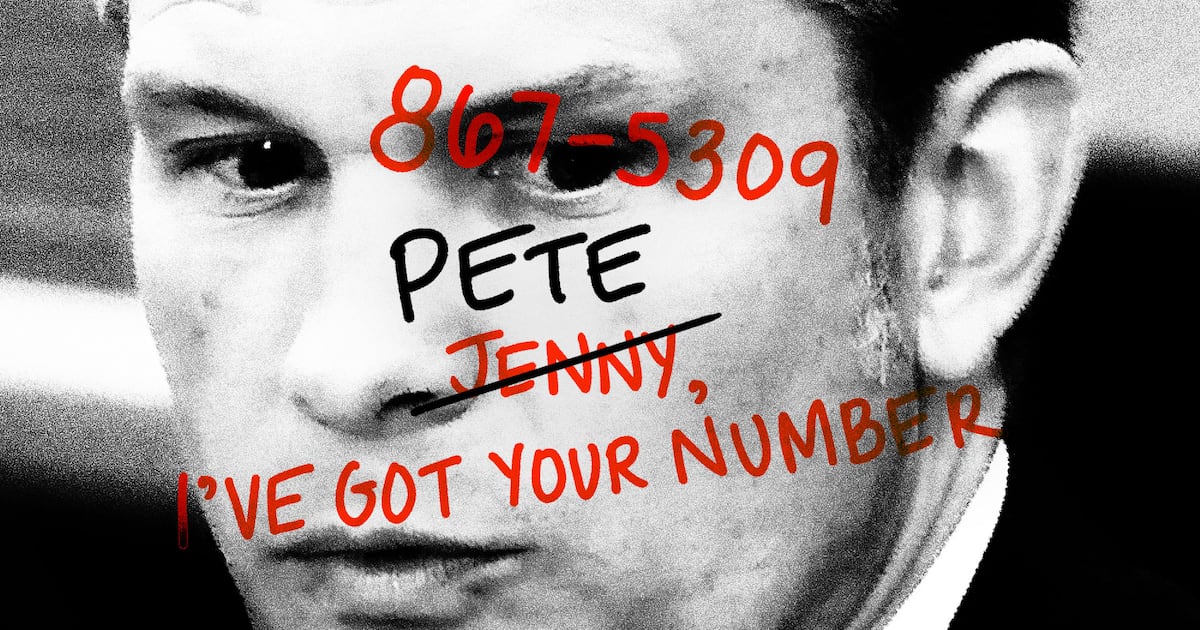As Tekashi 6ix9ine prepared to plead guilty to nine felony counts, Manhattan federal Judge Paul Engelmayer asked a question whose answer all the rapper’s real fans know.
Q: What is your full name?
A: Daniel Hernandez.
Q: How old are you?
A: I'm 22 years old.
Q: How far did you go in school?
A: I believe about the tenth grade.
Q: Where was that?
A: Legacy High School on 13th Street, Union Square, in Manhattan.
Q: Have you ever been treated or hospitalized for any mental illness?
A: Yes, sir.
Q: When was that?
A: I believe in 2011 -- 2011/2012, around that time.
Q: And briefly, what was the nature of the ailment in question?
A: It was depression and posttraumatic stress for the murder of my father -- stepfather.
Q: I'm very sorry to hear about that. And you said that the treatment concluded by about 2012?
A: I started becoming, just rebelling and not showering, like depression stuff.
Q: And what was the result of the treatment you had in 2011 and 2012?
A: They gave me Zoloft, other medication, but I never took it. My mom used, like, Mexican remedies.
Q: All right. Well, did the depression and posttraumatic stress symptoms go away?
A: Yeah. Yeah.
But if the symptoms went away, the effect of the father’s killing continued to reverberate. A bullet fired in Brooklyn a decade ago led directly to this moment in Manhattan federal court on January 23.
The father had been fatally shot in broad daylight in front of the family home on Locust Street in Bushwick when Tekashi was 13. Even in what had become the safest big city in America the murder received no public attention, not even a line in the newspapers. The killer was apparently never caught.
For the son it was a cataclysmic event, one that eventually caused him to transform himself from Danny Hernandez into Tekashi6ix9ine.
“I felt like my pops was a superhero, I felt like like my pops was invincible, so when they took my pops from me, I felt naked,” Tekashi said in a 2017 interview posted on YouTube.
“That made me rebel. That made me angry.”
He went on, ”I don’t want to be a superhero. I want to be a villain. Villains never die. I’m a villain. Fuck superheroes. I’m not trying to save nothing.”
In describing his father’s greatness, Tekashi began by saying that all people are puzzles with missing pieces.
“I’m missing more pieces that you, but I’m giving my pieces to help you,” Tekashi said. “That’s what a superhero does. That’s what my father did.”
Tekashi continued, “If he didn’t have it, he would try to help you, but he was hurting himself. My pops was always that good person. He was helping people without thinking about himself.”
Of himself, Tekashi said, “I can't help nobody. That’s not me. Because the world is a game.”
As he dropped out of school and sought to figure how he would play that game, Hernandez worked behind the counter at the Stay Fresh deli on Broadway in Bushwick. He was fired from the deli when he was arrested for selling small amounts of drugs.
In the meantime, he craved all the attention that had been stolen from him by his father’s murder. He also wanted as much as any teen does to be cool, but he could not afford name-brand clothes and shoes such as had long marked status in the street. He set out to create his own style.
Little Danny the deli clerk became Tekashi 6ix9ine the rapper. Other kids might have been sporting designer labels, but he had the letters H-I-V stenciled on the back of a t-shirt. He began getting 69 tattoos, including a large one on his forehead in case anybody might think he contemplated going normal. His girlfriend took him to a beauty salon, where he got his hair dyed in wild colors.
He felt as if he were successfully transforming himself into a movie character such as he would see as a youngster when his father took him to the Wyckoff and Court Street movie theaters.
“Tekashi 6ix9ine is his own fictional character,” he now declared.
Tekashi was on his way to becoming a bona fide villain when he and a buddy made sex tapes with a girl who proved to be just 13. His super hero father had perished in total obscurity. The villainous son became an internet sensation.
The same year he gave the YouTube interview about his father, Tekashi encountered some out-and-out villains.
“In the fall of 2017, I met and joined the Nine Trey Blood Gang,” he told the court during his guilty plea. “As a member of Nine Trey, the enterprise engaged in such activities including shooting at people, robbing people, and at times drug trafficking.”
He added, “We engaged in these various criminal acts to preserve and enhance the power of Nine Trey.”
He proceeded to specifically admit such crimes as helping to sell a kilo of heroin and conspiring to shoot a rival rapper with whom he had a FaceTime dispute.
Together, the crimes carried a mandatory minimum penalty of 47 years and a maximum of life.
But he would almost certainly receive a drastically reduced sentence if he lives up to the signed agreement with the prosecution that marks him as less a villain in the eyes of the law, but certainly no kind of hero in the eyes of anybody.
Fans would soon be taking to the internet saying the the guy who had upended style with an HIV shirt might as well be wearing one reading RAT.
Assistant U.S. Attorney Michael Longyear described the terms at the hearing:
“The defendant's obligations under this agreement are as follows: That he shall truthfully and completely disclose all information of the activities of himself and others to the U.S. Attorney's Office; that he will cooperate fully with the New York City Police Department, the Bureau of Alcohol, Tobacco and Firearms, Homeland Security Investigations, and any other law enforcement agency; that he shall attend all meetings of the Office; that he shall provide to the Office upon request any document; that he shall truthfully testify before the grand jury or at any trial; that he shall bring to the Office's attention all crimes which he has committed; and that he shall commit no further crimes. All information of the activities of himself and others to the U.S. Attorney's Office; that he will cooperate fully with the New York City Police Department, the Bureau of Alcohol, Tobacco and Firearms, Homeland Security Investigations, and any other law enforcement agency; that he shall attend all meetings of the Office; that he shall provide to the Office upon request.”
A senior law enforcement official described it more succinctly.
“Tekashi has joined Team USA,” he said.
Tekashi’s FaceTime feud with the Chicago rapper Tadoe had led to Tekashi threatening to put a hit out on him and his celebrity rapper cousin, Chief Keefe. Tekashi’s new role with Team USA included telling the feds that his fellow 9-Trey Blood and close buddy Kineta “Kooda B” McKenzie had sought to give him a modicum of street cred by firing a badly aimed shot at Tadoe and Chief Keefe as they stood outside the W Hotel in Times Square while visiting New York.
Back when Tekashi began to sense that the feds were closing in on him, he had unsuccessfully sought to avoid arrest by going on the radio and disassociating himself from his pals in the 9-Trey Bloods.
McKenzie seems to have had much the same sense of impending doom in late January, for he had suddenly begun visiting Brooklyn schools — as many as five in a day — counseling kids to avoid the illusions of the street. He may have had Tekashi in mind when he addressed one middle school crowd.
“All the buddies, the best friends, they going to go ghost,” he said. “You’ll be by yourself.”
McKenzie was no more successful than Tekashi at avoiding charges, but initially better at avoiding arrest. McKenzie was still at large when the indictment and Tekeshi's guilty plea were unsealed.
If McKenzie has not been collared by the time you read this, he almost certainly will be soon. The star witness against McKenzie and his co-defendants from the 9-Trey Blood gang will be called to the stand by the name he went by before becoming Tekashi.
“The People call Daniel Hernandez,” the clerk will say.










